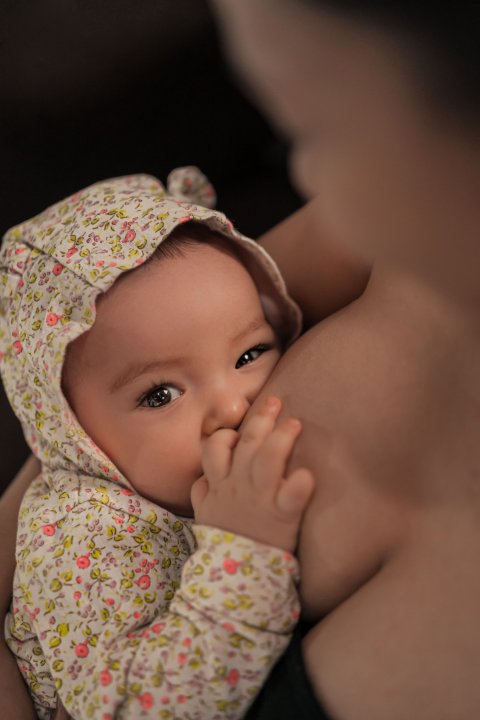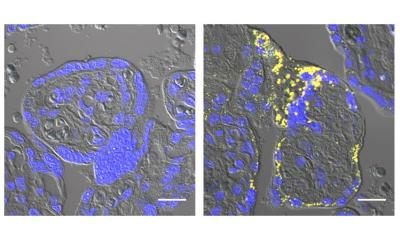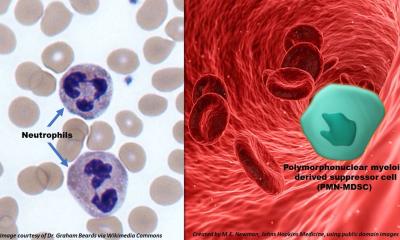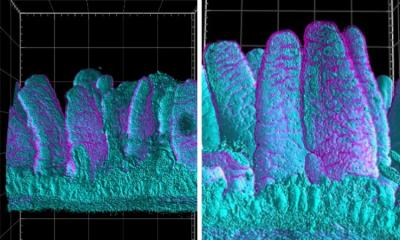News • Immune response in pregnant and lactating women
Mothers pass on Covid-19 protection to their babies after vaccination
In the largest study of its kind to date, researchers at Massachusetts General Hospital, Brigham and Women’s Hospital and the Ragon Institute of MGH, MIT and Harvard have found the new mRNA Covid-19 vaccines to be highly effective in producing antibodies against the SARS-CoV-2 virus in pregnant and lactating women. They also demonstrated the vaccines confer protective immunity to newborns through breastmilk and the placenta.

Image source: Pexels/Cleyder Duque
They also demonstrated the vaccines confer protective immunity to newborns through breastmilk and the placenta.
The study, published in the American Journal of Obstetrics and Gynecology (AJOG), looked at 131 women of reproductive age (84 pregnant, 31 lactating and 16 non-pregnant), all of whom received one of the two new mRNA vaccines: Pfizer/BioNTech or Moderna. The vaccine-induced titers – or antibody levels – were equivalent in all three groups. Reassuringly, side effects after vaccination were rare and comparable across the study participants. “This news of excellent vaccine efficacy is very encouraging for pregnant and breastfeeding women, who were left out of the initial Covid-19 vaccine trials,” says Andrea Edlow, MD, MSc, a maternal-fetal medicine specialist at MGH, director of the Edlow Lab in the Vincent Center for Reproductive Biology and co-senior author of the new study. “Filling in the information gaps with real data is key – especially for our pregnant patients who are at greater risk for complications from Covid-19. This study also highlights how eager pregnant and lactating individuals are to participate in research.”
According to the Centers for Disease Control and Prevention, individuals who are pregnant are more likely to become severely ill with Covid-19, require hospitalization, intensive care or ventilation – and may be at increased risk for adverse pregnancy outcomes. The team also compared vaccination-induced antibody levels to those induced by natural infection with Covid-19 in pregnancy, and found significantly higher levels of antibodies from vaccination.
Developers must realize that pregnancy is a distinct immunological state, where two lives can be saved simultaneously with a powerful vaccine
Galit Alter
Vaccine-generated antibodies were also present in all umbilical cord blood and breastmilk samples taken from the study, showing the transfer of antibodies from mothers to newborns. “We now have clear evidence the Covidvaccines can induce immunity that will protect infants,” says Galit Alter, PhD, core member of the Ragon Institute and co-senior author of the study. “We hope this study will catalyze vaccine developers to recognize the importance of studying pregnant and lactating individuals, and include them in trials. The potential for rational vaccine design to drive improved outcomes for mothers and infants is limitless, but developers must realize that pregnancy is a distinct immunological state, where two lives can be saved simultaneously with a powerful vaccine. We look forward to studying all vaccine platforms in pregnancy as they become available.”
The study was also able to provide insight into potential differences between the immune response elicited by the Pfizer vaccine compared to the Moderna vaccine, finding the levels of mucosal (IgA) antibodies were higher after the second dose of Moderna compared to the second dose of Pfizer. “This finding is important for all individuals, since SARS-CoV-2 is acquired through mucosal surfaces like the nose, mouth and eyes,” says Kathryn Gray, MD, PhD, an obstetrician at Brigham and Women’s Hospital and a first author of the paper. “But it also holds special importance for pregnant and lactating women because IgA is a key antibody present in breastmilk.”
Source: Massachusetts General Hospital
28.03.2021











